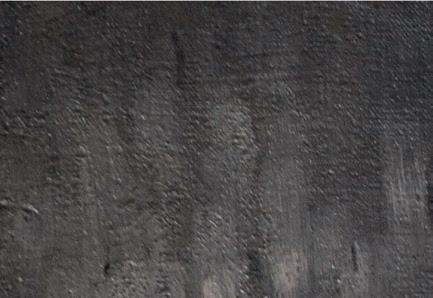



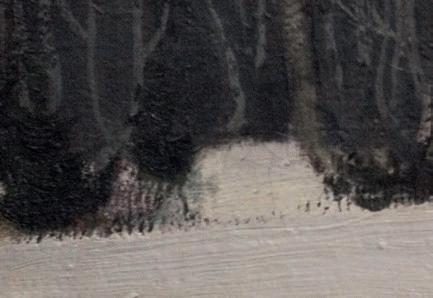
















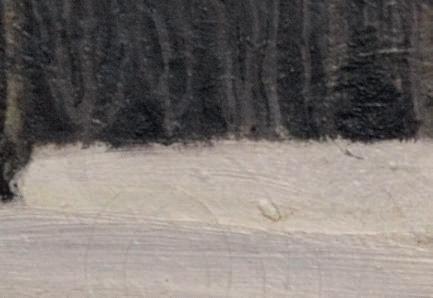



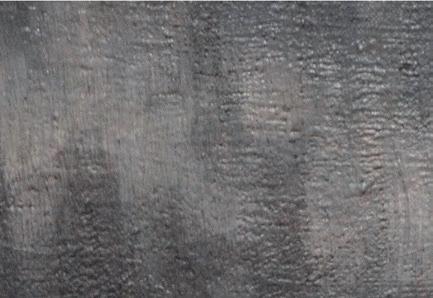
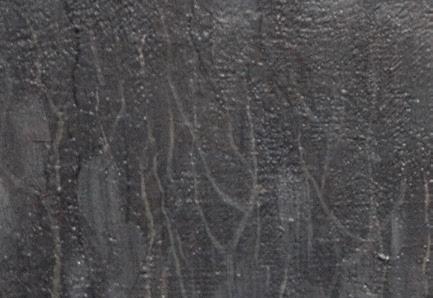

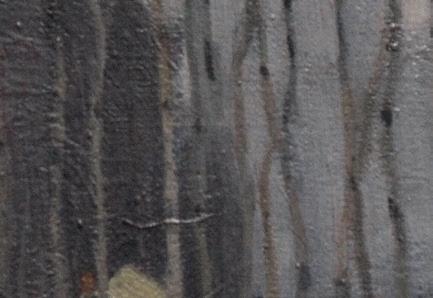

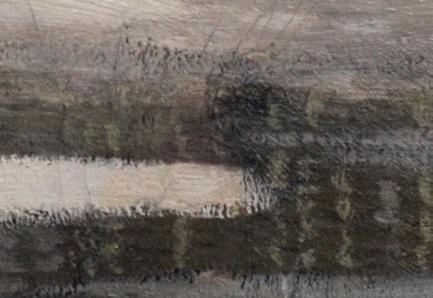
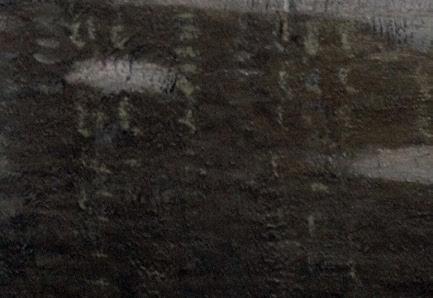

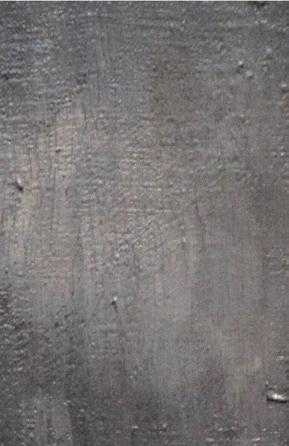

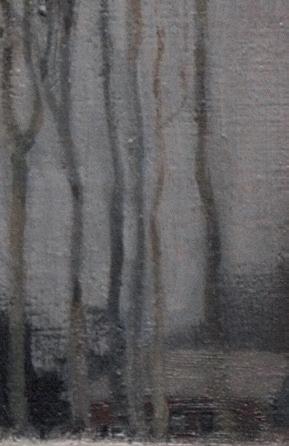

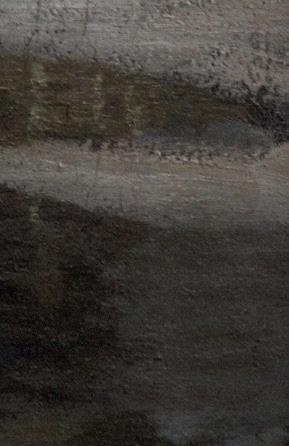
Georges Simenon was born in Liège, Belgium in 1903. An intrepid traveller with a profound interest in people, Simenon strove on and off the page to understand, rather than to judge, the human condition in all its shades. His novels include the Inspector Maigret series and a richly varied body of wider work united by its evocative power, its economy of means, and its penetrating psychological insight. He is among the most widely read writers in the global canon. He died in 1989 in Lausanne, Switzerland, where he had lived for the latter part of his life.
Written in 1968, The Hand takes its setting from the years Simenon had spent living at Shadow Rock Farm, in Lakeville, Connecticut, during the early 1950s.
He wrote Betty in 1960 on his return from a few weeks’ convalescence in Versailles.
The Blue Room was completed in 1963 and is one of the last novels Simenon wrote in Échandens Castle in Switzerland, where he lived from 1957 – 63. All his typescripts from this period were datelined ‘Noland’, his nickname for the peaceful, unassuming village that had become his home.
UK | USA | Canada | Ireland | Australia
India | New Zealand | South Africa
Penguin Classics is part of the Penguin Random House group of companies whose addresses can be found at global.penguinrandomhouse.com.
Penguin Random House UK
One Embassy Gardens, 8 Viaduct Gardens, London SW 11 7BW penguin.co.uk
The Hand first published in French as La main by Presses de la Cité 1968. First published in Great Britain in Penguin Classics 2016.
Betty first published in French as Betty by Presses de la Cité 1961. First published in Great Britain in Penguin Classics 2021.
The Blue Room first published in French as La chambre bleue by Presses de la Cité 1964.
First published in Great Britain in Penguin Classics 2015. This selection published in Penguin Classics 2025.
001
The Hand translation copyright © Linda Coverdale, 2016
Betty translation copyright © Ros Schwartz, 2021
The Blue Room translation copyright © Linda Coverdale, 2015
Betty copyright © 1961, Georges Simenon Limited, all rights reserved
La main copyright © 1968, Georges Simenon Limited, all rights reserved
La Chambre bleue copyright © 1964, Georges Simenon Limited, all rights reserved
The Hand And Other Novels copyright © 2025, all rights reserved
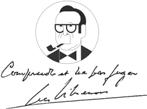


GEORGES SIMENON and ® , all rights reserved
original design by Maria Picassó i Piquer
The moral rights of the author and translators have been asserted
No part of this book may be used or reproduced in any manner for the purpose of training artificial intelligence technologies or systems. In accordance with Article 4(3) of the DSM Directive 2019/790, Penguin Random House expressly reserves this work from the text and data mining exception.
Set in 12.5/15pt Dante MT Std
Typeset by Six Red Marbles UK , Thetford, Norfolk
Printed and bound in Great Britain by Clays Ltd, Elcograf S.p.A.
The authorized representative in the EEA is Penguin Random House Ireland, Morrison Chambers, 32 Nassau Street, Dublin D 02 YH 68
A CIP catalogue record for this book is available from the British Library
ISBN : 978–0–241–78791–5
Penguin Random House is committed to a sustainable future for our business, our readers and our planet. This book is made from Forest Stewardship Council® certified paper.
part one
I was sitting on the bench, in the barn. Not only was I aware of being there, in front of the sagging door that, with each swing, let in a gust of wind and snow, but I saw myself as clearly as in a mirror, noting the incongruity of my situation.
The bench was a garden bench, painted red. We had three of them, which we put away for the winter along with the lawnmower, the garden tools and the window screens.
The barn, also of wood painted red, had been a real barn a hundred years earlier, but was now nothing more than a vast shed.
If I begin with that particular moment, it’s because it was a kind of awakening. I had not slept. Yet I was emerging, abruptly, into reality. Or was it a new reality that was beginning?
But then, when does a man begin to . . . No! I will not let myself go down that slippery slope. I am a lawyer by profession and have the habit, some even say the mania, of precision.
And yet, I don’t even know what time it might have been. Two o’clock? Three o’clock in the morning? At my feet, on the floor of beaten earth, the pink filament of the small flashlight was still shedding its last gleam without
Georges Simenon
illuminating a thing any more. With cold, numb fingers, I was trying to strike a match to light my cigarette. I needed to smoke. It was like a sign of recovered reality.
The smell of tobacco felt reassuring to me, and I stayed there, leaning forward, elbows on my knees, staring at the huge banging door that might collapse at any moment under the onslaught of the storm.
I had been drunk. I probably still was, which has happened to me only twice in my life. I remembered everything, however, the way you remember a dream when laying scraps of it end to end.
After a trip to Canada, the Sanders had come to spend the weekend with us. Ray is one of my oldest friends. We studied law together at Yale and, later, after our marriages, we had kept up the connection.
So. That evening, Saturday 15 January, when the snow had already begun falling, I’d asked Ray:
‘How do you feel about coming along with us for drinks at old Ashbridge’s place?’
‘Harold Ashbridge, from Boston?’
‘Yes.’
‘I thought he spent the winter down at his home in Florida . . .’
‘Ten years ago, he bought some property about twenty miles from here to play the gentleman farmer. He’s always there for Christmas and New Year’s and only goes off to Florida around mid-January, after a big party.’
Ashbridge is one of the few men who impress me. As is Ray. There are others. Actually, they aren’t as rare as all that. Not to mention the women. Mona, for example,
Ray’s wife, whom I always see as an exotic little animal, although as far as exotic goes, she’s barely one-quarter Italian by blood.
‘He doesn’t know me . . .’
‘At Ashbridge’s, you don’t need to know anybody.’
Isabel was listening without saying a word. Isabel never intervenes in such moments. She is the docile wife par excellence. She does not protest. She simply watches you and passes judgement.
At that point, there had been nothing to criticize in my behaviour. We went every year to that party at the Ashbridges’, which is like a professional obligation. Isabel did not point out that the snow was falling hard and that the drive up to North Hillsdale is a difficult one. In any case, the snowplough had certainly gone by.
‘What car are we taking?’
‘Mine,’ I said.
And at the back of my mind – it’s only now that I discover this – there was a tiny ulterior motive.
Ray works on Madison Avenue. He is a partner in one of the biggest ad agencies. I see him almost every time I go to New York and am familiar with his routine.
Without being a drinker, he does need two or three double martinis before each meal, like almost all those in his profession who live on their nerves.
‘If he drinks a bit too much, at the party . . .’
It’s funny – or tragic – to recall those little details a few hours later. For fear that Ray might over-indulge, I was taking precautions, arranging to be the driver on the way home. Except that I was the one who had got drunk!
Georges Simenon
At first, there were at least fifty people, if not more. An immense buffet was set out in the front hall, but all the doors were open, with people coming and going, even in the upstairs bedrooms, and bottles and glasses were everywhere.
‘May I introduce Mrs Ashbridge . . . Patricia, my friend Ray . . .’
Patricia is only thirty. She is Ashbridge’s third wife. She’s very beautiful. Not beautiful like . . . I wouldn’t say like Isabel; my wife has never been truly beautiful. Besides, I always find it difficult to describe a woman and I automatically do so in relation to my wife.
Isabel is tall, with a graceful figure, regular features and a slightly condescending smile, as if those with whom she is speaking were at fault in some way.
Well, Patricia is the opposite. On the small side, like Mona. Even more of a brunette than she is, but with green eyes. And Patricia, she looks at you, fascinated, as if she desired nothing more than to learn your innermost thoughts or to confide her own to you.
Isabel never conjures up the image of a bedroom. Now, Patricia – she always makes me think of a bed.
They say . . . But I pay no attention to what people say. First of all, I don’t trust hearsay. And then, I instinctively loathe indiscretion, so I hate backbiting all the more.
The Russels were there, the Dyers, the Collinses, the Greenes, the Hassbergers, the . . .
‘Ted! Hello!’
‘Dan! Hello!’
People talk, drink, come, go, nibble things that taste
like fish, turkey or beef . . . I had, I remember, a serious conversation off in the morning room with Bill Hassberger, who was thinking of sending me to Chicago to settle a legal matter.
Those people are rich. For most of the year, don’t ask me why, they live in our little corner of Connecticut, but they have business interests more or less throughout the country.
Compared to them, I’m a poor man. Dr Warren as well, with whom I chatted briefly. I was not drunk, far from it. I don’t know exactly when it all began.
Or rather, as of a few seconds ago, I do know, because on my bench, where I’m having at least my fifth cigarette, I’m suddenly discovering in myself a curious lucidity.
I went upstairs, for no reason, like others before and after me. I pushed open a door and quickly shut it, with just time enough to see Ray and Patricia in what wasn’t even a bedroom, but a bathroom, where they were making love, completely clothed.
I may be forty-five years old, but that image made such an impression that I can still see it in minute detail. Patricia saw me, I’m sure of that. I would even swear that the look in her eyes was not embarrassment, but a kind of amused defiance.
That’s very important. That image has considerable importance for me.
Sitting on my bench, in the barn, I had only a presentiment of this, but later on I had plenty of time to think about it.
I’m not claiming that it’s what drove me to drink, but
Georges Simenon
it was about at that moment that I began draining all the glasses within reach. Isabel caught me, and I blushed, naturally.
‘It’s hot,’ I murmured.
She did not advise me to be careful. She said nothing. She smiled, with her terrible smile that forgives or that . . .
That what? Later. I’m not there yet. There are so many other things to work out!
One summer, I decided to clean up the barn, intending to empty it, throw things away and neatly arrange what was worth keeping. After a few hours, overwhelmed, I sheepishly gave up.
That’s a little like what happens with another inventory, the one I undertook in the very same barn that night. This time, however, I’ll finish the job, no matter what it costs and what I discover.
Already there’s the image of Ray and Patricia to be properly filed away. And shortly afterwards, the look in old Ashbridge’s eyes. He’s no drunk, either, but a man who sips his drinks, especially after five in the afternoon. He’s a bit portly, and his big pale eyes are always moist.
‘Well, Donald?’
The two of us weren’t far from the buffet, with several noisy groups around us. We could hear various conversations overlapping at the same time.
Why did I have the impression that we found ourselves suddenly isolated, he and I? Confronting each other, that’s a better way to put it. For it was barely five minutes after the scene in the bathroom.
Hand
He was looking at me calmly, but he was looking at me. I know exactly what I mean. Most of the time, especially in such encounters, you don’t really look at the other person. You know the person is there. You talk. You listen. You reply. You let your gaze wander to a face, a shoulder . . .
He was looking at me, and the two words he’d just spoken took on the tenor of a question.
‘Well, Donald?’
Well . . . what? Had he seen, too? Did he know that I had seen?
He was neither gloomy nor threatening. He was not smiling, either. Was he jealous?
Did he know that Patricia was in the habit of . . . I was the one who felt guilty as he continued.
‘Your friend Sanders is a remarkable fellow . . .’
Some people left. We could see them, in the entryway, putting on their coats and rubber boots, which stood in a row all along a shelf. Each time the front door opened and closed it let in a gust of icy air.
Then there was the sound of the wind, monotonous at first, blustery in bursts later on, and the guests began to look questioningly at one another.
‘It’s still snowing?’
‘Yes.’
‘Well, then, we’re going to get a blizzard.’
Why I kept drinking, which was so unlike me, I still don’t understand. I went from one group to another; familiar faces began to seem different to me. I believe I even sneered and that Isabel saw me at it.
Georges Simenon
A kind of uneasiness began to set in. Certain guests lived rather far away, some in New York, others in Massachusetts, and had up to forty miles to cover to get home.
I was one of the last to go. I heard raised voices, exclamations whenever a group was leaving and a particularly violent blast entered the house.
‘In an hour there’ll be three feet of snow . . .’
I don’t know who said that. Then Isabel took my arm in a relaxed way, like a good wife, quite naturally. I understood nevertheless that it was time for us to leave as well.
‘Where is Mona?’
‘She went to get her mink in Pat’s bedroom.’
‘And Ray?’
Ray was in front of me, the everyday Ray, the Ray I’d been used to for twenty-five years.
‘Are we leaving?’ he asked.
‘I think so, yes.’
‘It seems you can’t see a thing in front of you.’
I did not shake Patricia’s hand the way I had those other times. I admit that I made this somewhat obvious, that I took a perverse pleasure in doing so. Did old Ashbridge notice?
‘Get in the car, kids . . .’
There were only three or four cars left out in the driveway. The already savage wind was blowing so much snow hard into our faces that we had to walk bent over.
The two women climbed into the rear seats. I took the wheel, without Isabel asking me if I were in a fit state to drive. I was neither depressed nor tired. On the contrary,
I felt pleasantly elated, and the roaring of the storm made me feel like singing.
‘And that’s one down!’
‘One what?’
‘Party . . . There’s still one left, next week at the Russels’, after which things will be quiet until the spring.’
At times the windshield wipers jammed for a moment before starting up again. The snow streamed by in almost horizontal white stripes in front of the headlights, and I used the black line of the trees to guide me because the edges of the road were no longer visible.
Behind me I could hear, in the warmth of the car and their fur coats, the two women exchanging banal remarks.
‘You weren’t too bored, Mona?’
‘Not at all. Patricia is charming . . . Actually, everyone was nice.’
‘In three days, they’ll be swimming in Florida.’
‘Ray and I think we’ll spend a few days in Miami next month . . .’
I had to lean forwards to see ahead of me and several times I got out of the car to scrape ice off the windshield. The third time, I felt as if I would be carried off by the blizzard.
We have them every winter, more or less powerful storms. We know the treacherous places, the snowdrift spots, the roads to avoid.
How did we get back to Brentwood? Through Copake or Great Barrington? I couldn’t tell you.
‘This one is a beaut, Ray ol’ buddy . . .’
A beautiful snowstorm. A true blizzard. When I turned
Georges Simenon
on the radio, that was in fact the word they were using. Up by Albany, they were already talking about winds of more than sixty miles an hour, and hundreds of cars were snowed in on roads to the north.
Instead of worrying me, the news excited me, as if I were welcoming with relief a little something extraordinary into my life.
We were not talking much, Ray and I. He was staring straight ahead, frowning whenever the visibility dropped close to zero. Then, on purpose, I would drive faster.
I had no score to settle with him. He was my friend. He hadn’t wronged me in any way by making love with Patricia Ashbridge. I wasn’t in love with her. I wasn’t in love with any woman. I was content with Isabel. What score would I have had to settle?
I had to spend a few minutes manoeuvring around a snowdrift and used one of the bags of sand we always keep in the car trunk in the winter. I had snow in my eyes, nose, ears, and some was getting in through the gaps in my clothing.
‘Where are we?’
‘Three more miles . . .’
It was harder and harder to make any progress. Even though we’d seen three ploughs, the snow piled up as soon as they had passed, and our windshield wipers were now useless. I kept having to leave the car to scrape the windshield.
‘Are we still on the road?’
Isabel’s voice was calm. She was asking the question, that’s all.
‘I assume so!’ I replied gaily.
The truth was, I no longer knew. It was only in crossing the small stone bridge a mile from home that I regained my bearings. Except that, after the bridge, the snow had formed an actual wall in which the front of the car embedded itself.
‘That’s it, folks. Everyone out . . .’
‘What do you mean?’
‘Everyone out. The Chrysler is not a bulldozer. We’ll have to keep going on foot . . .’
Ray looked at me, wondering if I was serious. Isabel had understood, since this had happened to us twice before.
‘Are you taking the flashlight?’
I removed it from the glove compartment and switched it on. It had been some months, perhaps two years, since we last used it and, as we might have expected, it produced only a yellowish gleam.
‘Let’s go . . .’
Things were still cheerful, at that moment. I can still see the women arm in arm, huddled forward, pressing on through the snow up ahead. I followed with the flashlight, and Ray walked silently beside me. No one said anything, actually. It was already rather hard to breathe in the blizzard without wasting more breath.
Isabel fell, got gamely to her feet. Sometimes the two women vanished into the darkness. I would shout, my hand in front of my mouth to ward off the freezing air: ‘Yoo-hoo! . . . Yoo-hoo! . . .’
And a vague ‘Yoo-hoo!’ would echo a reply.
Georges Simenon
The flashlight beam was weakening. All of a sudden, when we must have been only three or four hundred yards from our place, it died completely.
‘Yoo-hoo!’
‘Yoo-hoo!’
I had to be quite close to the women, because I heard the snow crunching. I could also hear, to my right, Ray’s footsteps.
My head began to spin. The energy the alcohol had given me was ebbing away, and it was more and more difficult to advance. In my chest, right where my heart was, I thought, I felt a pain that worried me.
Hadn’t men my age, even strong, healthy men, died like this of heart attacks in the cold and snow?
‘Yoo-hoo!’
I felt dizzy. I laboured with each step. I couldn’t see a thing any more. I could hear only that aggressive uproar of the blizzard and I was covered in snow.
I don’t know how long that lasted. I was paying no more attention to the others. I was still holding on, stupidly, to the dead flashlight, and was stopping every two or three steps to catch my breath.
Finally, there was a wall, a door opening.
‘Come in . . .’
A gust of warmth, in the darkness of the house.
‘And Ray?’
I did not understand. I wondered why the women hadn’t turned on the lights. I reached for the switch.
‘There’s no electricity . . . Where’s Ray?’
‘He was close by me . . .’
I called to him from the threshold.
‘Ray! . . . Hey, Ray! . . .’
I seemed to hear a voice, but it’s easy to hear voices in a blizzard.
‘Ray . . .’
‘Take the flashlight from the night table.’
We keep a smaller flashlight on our night table because the electricity sometimes goes off. I fumbled my way slowly through the rooms, bumping into furniture I did not recognize. Then a gleam appeared behind me, one of the red candles from the dining room.
It was strange to see Isabel emerge dimly from the darkness holding aloft one of the silver candelabras.
‘You found it?’
‘Yes.’
I had the flashlight in my hand, but it was hardly brighter than the one from the car had been.
‘Don’t we have any spare batteries?’
‘Aren’t there any in the drawer?’
‘No . . .’
I wanted a drink to buck me up but didn’t dare have one. The women said nothing to me. They did not urge me on. Even so, I felt that they were sending me out, armed with a half-dead flashlight, to search for Ray in the blizzard.
I will say everything, obviously, otherwise it would not have been worthwhile to begin. And, first of all: at no moment of the evening was I completely drunk.
If I try to define my state as accurately as possible,
Georges Simenon
I’d say that I possessed a warped lucidity. Reality existed around me, and I was in contact with it. I was aware of my actions. Taking pencil and paper, I could record almost exactly the words I spoke at the Ashbridge party, in the car afterwards and, later, at home.
Suffering from the cold on my bench, however, where I lit one cigarette after another, I was entering, I felt, a new lucidity, which made me uneasy and was beginning to frighten me.
I could sum it up in a word – in four words, rather, which I seemed to hear out loud: ‘You have killed him . . .’
Perhaps not in the legal sense. But then again, isn’t the refusal to help someone in danger considered a kind of crime?
When I had left the house, when the two women had sent me out to look for Ray, I had gone immediately to the right. More precisely, to fool them, in case they’d been watching me from the window and seen the glint from my flashlight, I’d first walked straight ahead for a few yards and then, safe in the darkness, I had veered right, knowing that I would find the barn about thirty yards along.
I was physically exhausted and think I can say that my morale was spent as well. This enormous storm, this world gone mad that had earlier elated me to the brink of nervous hilarity, now suddenly scared me.
Why had the women stayed in the house? Why hadn’t they, too, come along to search? I thought back to Isabel, impassive, looking like a statue with her silver candelabra
The Hand
held a little higher than her shoulder. Mona, her features blurred in the shadowy light, had said nothing.
Neither of them had seemed to understand that a real tragedy was taking place and that by sending me outside they were putting me, too, in danger. My heart was beating too fast, in fits and starts. At every moment I kept losing my breath.
I was afraid, I’ve already said so. I called out one or two times more.
‘Ray! . . .’
It would have been a miracle if he had heard me, just as it would have been if he had glimpsed the glow, way too weak, of the flashlight through the snow falling almost parallel to the ground. It wasn’t falling, it was whipping, thrown forward in actual clumps that hit you in the face and smothered you.
I heard the barn door creak and rushed inside, where I collapsed on the bench.
A red bench. A garden bench. I did see the grotesque aspect of the situation: in the middle of the night, in the middle of a blizzard, a forty-five-year-old man, a lawyer and respectable citizen, sitting on a red bench lighting a first cigarette with a trembling hand as if this were going to warm him up.
‘I killed him . . .’
Perhaps not yet. Doubtless he was still alive, but dying, in danger of death. He was not familiar, as I was, with the area around the house and if he veered to the right, if he was off by just a few yards, he would tumble down a small cliff into a freezing stream.
Georges Simenon
That was nothing to me. I did not have the courage to look for him, to run the slightest risk. On the contrary. And here is where I’ve arrived, where I am indeed forced to end up. Here is where I was heading little by little, on that particular night, the night of 15–16 January, on my bench, in the barn: what was happening to Ray did not displease me.
Would I have been in the same frame of mind if I had not been drinking at the Ashbridges’ party? This problem is difficult to resolve and, in the end, does not change much. Would I have felt the same perverse relief if I had not pushed open the bathroom door and surprised Ray making love with Patricia?
Now, that’s different. I’m getting to the heart of my ruminations. For what I was indulging in on my bench were ruminations rather than coherent reflections.
I had the time. I was supposed to look for Ray. The longer I stayed outdoors, the more thanks I would receive. What Ray was doing that evening in the bathroom, with a woman he had known for barely two hours, one as beautiful and desirable as Patricia, was something I’d dreamed of doing a hundred, a thousand times.
He had married Mona, who, like Patricia, makes men think of a bed.
Me, I married Isabel.
I might almost say, ‘That’s all there is.’
But it isn’t. I had begun, God knows why, tearing off a corner from everyday truth, begun seeing myself in another kind of mirror, and now the whole of the old, more or less comfortable truth was falling to pieces.
This went back to Yale. This went back to before Yale, before I knew Ray. This went back, in the end, to my childhood. I would have liked . . . Where are words when you need them! . . . I would have liked to do everything, be everything, be daring in every way, to look people in the eye, to tell them . . .
To look at people the way old Ashbridge does, for example, before whom, earlier that evening, I had felt like a little boy.
He didn’t bother to speak, to strike an attitude. He didn’t try to communicate. I was in front of him. Was he perhaps looking straight through my head? I was of no importance.
He was seventy years old and had never been handsome. He drank his little drinks that gave his eyes that glazed look, and dozens of guests had invaded his house. Did he worry about what they thought of him? He provided them with food, drink, armchairs, open bedrooms, as well as the bathroom where Patricia . . . Did he know that his wife was cheating on him? Did he suffer because of it? Did he, on the contrary, despise poor Ray, who had merely followed so many others and who, within five minutes, would no longer matter, who already no longer mattered, whom Patricia would perhaps, that very evening, replace with a successor in the same or some other room?
I didn’t admire Ashbridge simply because he was rich and had interests in fifty different business ventures, from commercial shipping to television stations. When he had moved into the area ten years earlier,
Georges Simenon
I would have liked to have had him as a client, to have acquired just a tiny part of his affairs to look after.
‘One of these days, I’ll have to have a talk with you,’ he’d told me.
The years had passed, and he had never had that talk. I did not resent him for that.
With Ray, it was different, because Ray and I were the same age, had almost the same background; we’d studied the same things, and at Yale I’d been more brilliant than he was and he’d become an important figure on Madison Avenue, whereas I was just a plucky little lawyer in Brentwood, Connecticut.
Ray was taller than I was, stronger than I was. At twenty, he could already look at people the way old Ashbridge did.
I’ve met other men of their kind. I have some for clients. My attitude towards them varies depending on the day and my mood. At times I’m convinced that it’s admiration. At other moments I admit to a certain envy.
Well, I knew this now, I’d just discovered it on my bench: it was hatred.
They frightened me. They were too strong for me, or I was the one too weak for them.
I remember the evening when Ray introduced me to Mona, who was wearing a little black silk dress, underneath which you could sense her body, alive in its smallest recesses.
‘Why not me?’
For me, Isabel. For him, Mona.
And, if I chose Isabel, isn’t that precisely because I never dared to speak to a Mona, to a Patricia, to all the
women whom I’ve desired to the point of clenching my fists in rage?
The wind was blowing so violently that I expected to see the roof fly off the barn. Its upper hinge broken, the door now sagged crookedly, which did not prevent it from striking muffled blows against the wall.
The snow whirling inside the barn almost reached my feet, and I kept thinking in a kind of delirium, a cold delirium, a lucid delirium.
‘I killed you, Ray . . .’
And what if I went to tell them this, those two women nice and warm in the house, in the candlelight?
‘I killed Ray . . .’
They would not believe me. I was not even the man to kill Ray, or to kill anyone.
I had just done so, however, and this flooded me with a sense of physical joy, as if I had just cheered myself up with a potent drink.
I stood up. After all, I was not supposed to spend hours outside. Besides, I was frozen stiff and was scared about my heart. I have always been afraid that my heart would suddenly stop beating.
I plunged out into the snow that was hitting my face, my chest, enveloping my legs. I had to make an effort to hoist out one foot, then the other.
‘Ray!’
I had to make sure I did not make a mistake and stray from the path. The house was invisible. I had taken my bearings when I’d left the barn. All I had to do now was walk straight ahead.
Georges Simenon
And what if I found Ray in front of the living-room fireplace with the two women? I imagined them, watching me enter like a ghost, smiling and saying, ‘Why did you stay out so long?’
That frightened me so much that I managed to walk faster, so that I bumped into the wall of the house. I felt my way along to the door. No one had heard me arrive. I turned the knob and saw first the logs burning in the fireplace, then someone, in an armchair, wearing Isabel’s light blue peignoir. It wasn’t Isabel. It was Mona.
‘Where is she?’
‘Isabel? . . . She went to fix something to eat. But . . . Donald!’
It was almost a shout: ‘Donald!’
She did not rise from her armchair. She did not look at me. She stared at the flames in the hearth. Her face reflected no feeling; she looked stunned.
In a low voice she added, ‘You didn’t find him?’
‘No.’
‘Watching the time go by . . .’
Yes, seeing the time pass, she had begun to understand.
‘Still, he’s a strong man,’ I said, ‘more vigorous than I am . . . Perhaps . . .’
‘Perhaps what?’
How to lie? And how could Ray have oriented himself in that ocean of snow and ice?
Isabel arrived, candelabra in one hand, a plate of sandwiches in the other. She looked at me; her face became paler, her features more rigid.
‘Eat, Mona.’
How long does it take to die, buried in snow? Another three or four hours, and day would begin to break.
‘Did you try telephoning?’ I asked.
‘The lines are dead.’
She looked pointedly at a small transistor.
‘We’ve been getting the news every fifteen minutes . . . It seems the storm stretches from the Canadian border to New York. Almost everywhere, out in the countryside, the phone and electricity are cut.’
In a dull voice she added:
‘Ray should have held on to your arm, the way Mona and I were walking . . .’
‘He was at my right, not far from me . . .’
Mona wasn’t crying. She was holding a sandwich and finally took a bite.
‘Have you anything to drink, Isabel?’
‘Some beer? Spirits? I can’t fix you anything hot, because the stove is electric.’
‘Some whisky . . .’
‘You ought to take a bath, too, Donald. Later, there won’t be any more hot water.’
It’s true, the oil burner shuts down. Everything is electric, even the clocks, except for the little one in our bedroom.
Now I understood why Mona was wearing Isabel’s bathrobe. My wife had made her take a bath, to relax as well as warm her.
‘Did you go as far as the car?’
‘Yes.’
Again, I felt a rush of fear. What if, while zigzagging
Georges Simenon
in the snow, Ray had wound up back at the car? The smartest thing would then have been to shelter inside it, muffling up there as best he could to wait for daylight.
Our house, Yellow Rock Farm, is not on the road. We have a private access road of more than half a mile. As for the neighbours, they’re about a mile away.
‘From what I know of Ray . . .’ my wife began.
I waited for the rest with curiosity.
‘. . . he’ll have pulled through . . .’
Not me, but him. Because it’s Ray. Because it’s someone other than Donald Dodd.
‘Aren’t you going to have a bath? . . . Take the candle . . . We’d best not waste them, and light only one at a time. Here, we have the fireplace flames.’
The radiators were going to grow cold. They were cooling already. In a few hours, there would be no more heat except in the living room. We’d be forced to huddle there, all three of us, as close as possible to the hearth.
It was my turn to carry the candelabra to find my way to our bedroom. I began wanting a drink again. Retracing my steps, I found Isabel pouring Mona a whisky.
I took a glass from the cupboard, picked up the bottle in turn and understood my wife’s look. Still no reproach. Not even a mute warning. It was different. It had been going on for years, doubtless for as long as we’d known each other. A sort of official record.
She noticed things, without commentary, as if without passing judgement – and even forbidding herself to do so. The facts were nevertheless all there, in columns, perfectly organized, one after the other.
There must have been thousands, tens of thousands of them. Seventeen years of life together, not counting a one-year engagement!
I served myself generously on purpose, pouring the double – if not the triple – of my usual amount.
‘Cheers, Mona . . .’
A silly thing to say, but she didn’t seem to hear. I drank greedily. The warmth spread through me, and only then did I realize how cold my body was.
The bathroom reminded me of the one at the Ashbridges’ house, and a thought of humiliating vulgarity occurred to me.
‘At least he will have had one last pleasure . . .’
Why was I so sure that Ray was dead? The hypothesis about the car was plausible. Perhaps Isabel was right. She had no idea that I hadn’t gone that far. He might also have reached, although that was more difficult, one of the surrounding houses. Since the telephone was out of order, it was impossible for him to let us know.
‘I killed him . . .’
Mona had the same impression as I did; I’d seen that in her attitude. Does she really love Ray? Are there people who go on loving one another after a certain number of years?
Ray and Mona have no children. Us, we’ve got two, two girls, who are at Adams, one of the best boarding schools in Connecticut, in Litchfield, run by Miss Jenkins.
Did they have light, in Litchfield?
Mildred is fifteen, Cecilia twelve, and every two weeks
Georges Simenon
they come and spend the weekend at the house. Luckily this had not been one of their weekends.
The water was running in the bathtub. I put my hand under the faucet in time to notice that the water was now cold, and I had to settle for a third of the bathtub.
It was an odd feeling, that night, to be an honourable man, one of the two partners of the firm of Higgins and Dodd, married, the father of two girls, the owner of Yellow Rock Farm, one of the oldest and most pleasant houses in Brentwood, and to think about having just killed a man.
By omission, true! By having failed to look for him.
Who knows? If I had spent hours with my dying flashlight, wandering in the snow, it is possible, even probable, that I would not have found him.
In my mind, then? That was closer to it. I had not searched. As soon as I could not be seen from the house, I had veered off towards the barn to take shelter.
Would Mona be in despair? Did she know that Ray was having sex with other women whenever he got the chance?
Who knows if she wasn’t like Patricia? Perhaps Ray and Mona weren’t jealous and told each other about their adventures?
I promised myself to look into that. If anyone ought to profit from that, it was I . . .
I almost fell asleep in my bath and was careful not to slip getting out of the tub, because I did not feel too sure of my movements.
What would we do, all three of us? Going to bed wasn’t likely. Do you go to bed when the husband of a guest . . .
No. We wouldn’t go to bed. Besides, the rooms were growing chilly, and I was shivering in my bathrobe. I chose some grey flannel pants and a thick pullover I usually wore only to shovel snow along the driveway.
One of the two candles was finished, so I lit the second one and put on my slippers to head for the living room.
‘Do you know if there’s more wood in the cellar?’
We hardly ever used any. We only had a fire in the fireplace when we had friends over. To get to the cellar we raised a trapdoor and went down a ladder, which complicated the fetching of any logs.
‘I think we still have some . . .’
I looked automatically at the bottle of Scotch. When I’d left the two women, the bottle had been half full. Now it was almost empty.
Isabel had followed my glance, evidently, and – again evidently – had understood.
With another look, she gave me the answer, gazing at Mona asleep in her armchair, her face crimson. Her peignoir, in falling slightly open, had uncovered a bare knee.
When I half-opened my eyes, I was lying on the couch in the living room, where someone had covered me with the red, blue and yellow plaid throw blanket. The sun was up, but its light shone only weakly through windowpanes thick with frozen snow.
What first struck me, and had perhaps awakened me, was the familiar odour of ordinary mornings: the smell of coffee. Memories of the previous evening and night returned. I wondered if the electricity was back on. Turning my head a little, I caught sight of Isabel on her knees at the hearth.
I had a really bad headache and was not pleased at having to tackle the reality of a new day. I would have liked to fall back asleep but, before I had time to close my eyes again, my wife asked:
‘Did you get some rest?’
‘I think so . . . Yes.’
I got up and realized that I had been drunker than I’d thought. My whole body hurt, and I felt dizzy.
‘Coffee will be ready in a minute.’
It was my turn to ask.
‘Did you sleep?’
‘I dozed . . .’
Well, no. She had watched over the both of us,
Mona and me. She had been magnificent, as always. It was in her nature to behave perfectly, whatever the circumstances.
I imagined her, sitting up straight in her armchair, looking from one to the other of us, sometimes rising quietly to stoke the fire.
Then, at the first glimmer of dawn, snuffing out the precious candle and going to the kitchen to look for the pot with the longest handle. While we were sleeping, she had thought of the coffee.
‘Where is Mona?’
‘She went to get dressed.’
In the guest room, at the end of the corridor, with windows that looked out over the pond. I remembered the two blue leather suitcases that Ray had carried in the previous day, before the evening at the Ashbridges’ house.
‘How is she?’
‘It hasn’t sunk in yet . . .’
I was listening to the storm, still as strong as when I had fallen asleep. Isabel poured me coffee in my usual cup; we each had our own cups, and mine was a little larger, because I drink lots of coffee.
‘We’ll have to bring up some wood.’
There were no more logs in the basket to the right of the fireplace, and those burning there would soon crumble to ash.
‘I’ll go.’
‘You don’t want me to help you?’
‘No, no . . .’
I understood. She’d glanced at me two or three times
Georges Simenon
and knew I had a hangover. She knew everything. Why bother trying to deceive her?
I finished my coffee, lit a cigarette, went into the little room next to the living room, the one we call the library because one wall is covered with books. Folding back the oval carpet, I uncovered the trapdoor; I lifted it and only then remembered that I would need a candle.
All this is confused, unreal.
‘How many candles are left?’
‘Five. Just now, I got Hartford on the radio.’
It’s the nearest big city.
‘Most of the countryside is in the same fix we are. They’re working everywhere to repair the lines, but there are still places they can’t get to.’
I imagined the men, outside in the blizzard, climbing the poles, and the tow trucks making their way through the ever-thicker snow.
I descended the ladder, holding my candle, and went towards the back of the cellar carved out of the bedrock, the yellow rock that had given its name to the former farm. I was tempted to sit down to be alone, so that I could think.
But think about what? It was over. There was nothing more to think.
Now I had to bring up some wood.
My memory of that morning is vaguely sinister, like certain Sundays of my childhood, when rain kept me inside and I didn’t know what to do with myself. Then I would feel that people and things were not where they should
be, that sounds were different, both those in the street and those inside. I felt at a loss, with a small knot of anguish in the deepest part of me.
That reminds me of a silly detail. My father would lie in bed longer than on other days, and sometimes I’d see him shave. He came and went, wearing an old bathrobe, and his smell was different, like the smell of my parents’ bedroom, perhaps because it was tidied up only later in the day.
‘Good morning, Donald . . . Did you manage to sleep a little?’
‘Yes, thanks. And you?’
‘Me, you know . . .’
She was wearing black slacks and a yellow sweater. Hair and make-up just so, she was smoking a cigarette with a weary air while stirring her spoon in her cup.
‘What are we going to do?’
She was just making conversation, carelessly, watching the flames.
‘I think, at a pinch, that I can fix you some fried eggs. There are eggs in the fridge . . .’
‘I’m not hungry.’
‘Neither am I. If there’s any more coffee . . .’
Coffee, cigarettes: as far as I was concerned, that was all I wanted. I went to peek out the door, which I had to hold tightly against the blowing snow, and could barely recognize our surroundings.
The snow formed waves more than a yard high. It was still falling, as heavily as during the night, and you could hardly see the red mass of the barn.
Georges Simenon
‘You think we could try?’ Isabel asked me.
Try what? Going to look for Ray?
‘I’ll put on my boots and sheepskin jacket . . .’
‘I’ll go with you.’
‘Me too.’
All this made no sense, and I knew it. I felt like telling them quietly: ‘It’s useless to look for Ray. I killed him.’
Because I remembered having killed him. I remembered everything that had happened on the bench, everything I had thought. Why was my wife constantly darting glances at me?
In her eyes, I’d done some drinking, of course. That’s not a crime. A man has the right, twice in his life, to get drunk. I had picked the wrong evening, but I’d had no way of knowing that.
Besides, it was Ray’s fault. If he hadn’t dragged Patricia into the upstairs bathroom . . .
Tough luck! I was going to pretend again. I put on my boots. I put on my sheepskin jacket. Isabel did the same, telling Mona:
‘No, no, you stay here. Someone has to keep the fire going.’
We walked side by side, basically pushing ourselves through the snow, which piled up in front of us as we tried to advance. The cold stiffened our faces. My head was spinning, and I was afraid every instant that I would collapse, worn out. I didn’t want to be the first to give up.
‘It’s useless,’ Isabel finally decided.
Before going inside, we scraped clear one of the windows so we would now have some view of the outdoors.
Mona had returned to her place by the fire and asked us no questions.
She was listening to the radio. Hartford was announcing that roofs had been torn off, that hundreds of drivers were trapped on the roads. They mentioned the places most affected, but Brentwood was not among them.
‘We still have to eat . . .’
Making up her mind, Isabel went off to the kitchen, and we were left side by side, Mona and I. I wonder if that was really the first time that we’d found ourselves alone in a room. Anyway, I thought it was, and that gave me an uneasy pleasure.
How old was she? Thirty-five? Older? She had done some theatre, a while back, and a bit of television. Her father was a playwright. He wrote successful musical comedies and had had a rather tumultuous life until his death three or four years back.
What was mysterious about Mona? Nothing. She was a woman like any other. Before marrying Ray, she must have had some affairs.
‘All this seems so unreal to me, Donald . . .’
I looked at her and found her touching. I would have liked to take her in my arms, hold her close, stroke her hair. Were those the actions of a Donald Dodd?
‘It seems that way to me, too.’
‘You risked your life, last night, leaving to look for him . . .’
I kept quiet. I wasn’t ashamed. Deep down, I was enjoying this moment of intimacy.
‘Ray was a great guy,’ she murmured a little later.
Georges Simenon
She was speaking of him as if he were someone already far away, with, I thought, a sort of detachment.
After a fairly long silence, she added, ‘We got along well, the two of us . . .’
Isabel returned with a pan and some eggs.
‘This is the easiest thing to prepare. There’s some ham in the fridge, for whoever wants some.’
As she had in the morning, she knelt down before the hearth, where she managed to settle the pan on an even keel.
What were people doing in the other houses? The same thing, probably. Except that not everyone had a fireplace, or wood. The Ashbridges would definitely be obliged to postpone their departure for Florida.
And the girls, off at Adams? Did they have anything to heat with, up there? I reassured myself: Litchfield was a rather important town, and there had been no mention of power outages in the towns.
‘The most powerful blizzard in seventy-two years . . .’
After the news, the radio went back to singing, and I turned the dial.
We had to eat quite close to the fire because at a few yards away you could already feel the bitter cold.
Why Isabel? . . . For as long as we’ve known each other, as I’ve said, she has constantly looked at me in a certain way, but it seemed to me that on that morning there was something different.
I even had the feeling, at one point, that her look meant: ‘I know.’
Without anger. Not like an accusation. Like a simple observation.
‘I know you and I know.’
It’s true that my hangover was not going away and that at least twice I almost went off to throw up my lunch. I was anxious to drink something to get me back on my feet. I didn’t dare.
Why? Always questions. I’ve spent my life asking myself questions – not many, a few, some rather idiotic – without ever finding satisfactory answers.
I’m a man. Isabel had found it normal, the previous evening, to see about fifty men and women drink beyond all measure. Well, I had almost felt that I should sneak those glasses I was grabbing from the tables and draining on the fly.
Why?
She had been the first, when we arrived home, to pour a Scotch for Mona, even though she was a woman, while I had waited a long time before daring to get myself one.
What was preventing me, now, from opening the liquor cabinet, taking out a bottle and fetching a glass from the kitchen? I needed a drink. I was literally staggering. I had no desire to get drunk, wanted only to steady my nerves.
It took me more than half an hour and even then, I cheated.
‘Wouldn’t you like a Scotch, Mona?’
She looked at Isabel as if to ask permission, as if my offer didn’t count.
‘Perhaps it would do me some good?’
‘How about you, Isabel?’
Georges Simenon
‘No, thanks.’
Outside of the evenings we spend at parties or giving one at our house, I usually drink only a single whisky a day, after getting home from the office for dinner. Isabel often has one with me, quite a weak one, it’s true.
She is not a puritan. She does not criticize either people who drink or those of our friends who lead more or less irregular lives.
So, why that fear, for God’s sake? Because anyone might have thought that I was afraid of her. Afraid of what? Of a reproach? She had never reproached me for anything. What then? Afraid of a look? The way I was scared, as a child, of the look in my mother’s eyes?
Isabel is not my mother. I am her husband, and we have had two children together. She never undertakes anything without asking my advice.
She is nothing like the pushy, dominating woman so many husbands complain about and when we are with other people, she always leaves the talking to me.
She is calm, quite simply. Serene. Wouldn’t that word explain everything?
‘Cheers, Mona . . .’
‘Cheers, Donald . . . And to you, Isabel . . .’
Mona wasn’t trying to put on a show of grief. Perhaps she was suffering, but it must not have been a wrenching sorrow. She had said, as if truly from her heart: ‘Ray was a great guy.’
Was that not revealing? A fellow something like a pal, a good friend with whom one has travelled a while through life in as pleasant a way as possible.
That was also what was attracting me. For a long time, I had had a sense of that peaceful and indulgent understanding between them.
Ray had wanted Patricia Ashbridge and he had taken her, without worrying – I’m sure of that now – about whether his wife would learn of it or not.
‘I think the wind is dying down . . .’
Our ears were so used to the noise of the storm that we noticed the slightest change. It was true: we were still a long way from silence, but the intensity of the sound had dropped, and, looking out of the window we’d tried to scrape clear, I thought the flakes were falling almost vertically, although just as thickly.
Emergency teams were working all over the area to clear the roads, and ambulances were trying to get through to reportedly dozens of dead and injured.
‘I wonder what will happen . . .’
It was Mona talking, as if asking herself the question. The snow would not melt for several weeks. Once the roads were cleared, they would deal with our access road. Then crews would undoubtedly come to look for Ray’s body.
And after that? Ray and Mona had a handsome apartment in one of the most pleasant and elegant neighbourhoods of Manhattan, in Sutton Place by the East River.
Would she return to live there alone? Would she try to get work again in the theatre, in television?
She had been right, a little earlier. It was all unreal, incomprehensible. And I, during my meditation on the
Georges Simenon
bench in the barn, I had not thought for one instant about Mona’s future.
I had killed Ray, so be it. I had taken revenge in a rather foul and cowardly way, without worrying about the consequences.
In reality, I had not killed anyone. It was useless to boast. I could have floundered around in the snow for the rest of the night with absolutely no chance of finding my friend.
I had killed in thought. In intention. Not even in intention, because that would have required a coldbloodedness I had not possessed at that moment.
‘Maybe we should bring mattresses in front of the fire and try to sleep?’ suggested Isabel. ‘Not you, Mona. Let Donald and me do it.’
We went to the guest bedroom for that mattress, and then upstairs to get the two girls’ mattresses, which were narrow and light.
I wondered somewhat foolishly if we were going to place them side by side, thus making a kind of huge bed on which all three of us would sleep, and I’m sure Isabel guessed what I was thinking.
She left about the same space between the mattresses that usually separates twin beds, and then she went to get some blankets.
I could be mistaken. I probably am. During the short time in which we were again alone, Mona looked at me, then at the mattresses. Was she wondering which would be hers and which mine? Was there, I won’t say a temptation, but some vague notion in the back of her mind?
After Isabel had returned and spread out the blankets, we hesitated for a second. And, this time, I am certain of what I am saying. Isabel did not just happen to choose the mattress on the right, leaving me the one in the middle, and saving the one on the left for Mona.
She was putting me, on purpose, between the two of them. This meant: ‘You see! I have confidence . . .’
In me or in Mona?
True, it might also mean: ‘I’m leaving you free. I have always left you free.’
Or even: ‘You really wouldn’t dare . . .’
It was just past noon, and we all three tried to get some sleep. The last thing I remember was Mona’s hand, on the parquet floor, between our two mattresses. That morning, in my sleepy state, was taking on an extraordinary significance. For a long while, I wondered if I would dare reach out my hand to touch her as if by accident.
I was not in love. It was the gesture that counted, the audacity of the gesture. I felt that it would be a deliverance. But my mind must already have been fogging over because the image of the hand turned into that of a dog I recognized, the dog owned by one of our neighbours when I was twelve.
I must have been asleep.
The electricity came back on shortly after ten o’clock that evening, and it was a curious sight to see all the lamps in the house suddenly turn on by themselves while the candle kept burning, almost ridiculous with its reddish flame.
Georges Simenon
We looked at one another, relieved, as if it were the end of all our problems, all our sorrows.
I went down into the cellar to turn the heat back on; when I came upstairs again, Isabel was trying out the telephone.
‘Is it working?’
‘Not yet.’
Once more I imagined the men outside, climbing the telephone poles with those strange metal half-circles on their feet that enable them to clamber up like monkeys. I’ve often dreamed of climbing poles like that.
‘Where are we sleeping?’ asked Mona.
‘The bedrooms will take a while to heat up. We’ll have to wait at least two or three hours.’
We did not talk much, that Sunday, neither during the day nor in the evening. If I were to write out the string of words we said, it wouldn’t make three pages.
No one tried to read. It was even more out of the question to play any kind of game. Luckily there were the flames dancing in the fireplace, and we spent most of our time gazing at them.
We went to bed fully dressed, in the same places as that afternoon, but I did not see Mona’s hand on the floor. At one point, I heard movements around me. I saw Isabel, standing in front of the fireplace, folding a blanket.
I didn’t need to ask her what was happening. She had read the question in my eyes.
‘It’s six o’clock. The bedrooms are warm. It would be better to finish the night in our beds.’
Mona was kneeling on her mattress, her face flushed, her eyes dazed with sleep.